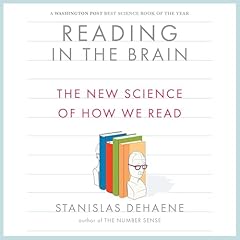
The Knowledge Gap
The Hidden Cause of America's Broken Education System--and How to Fix it
No se pudo agregar al carrito
Solo puedes tener X títulos en el carrito para realizar el pago.
Add to Cart failed.
Por favor prueba de nuevo más tarde
Error al Agregar a Lista de Deseos.
Por favor prueba de nuevo más tarde
Error al eliminar de la lista de deseos.
Por favor prueba de nuevo más tarde
Error al añadir a tu biblioteca
Por favor intenta de nuevo
Error al seguir el podcast
Intenta nuevamente
Error al dejar de seguir el podcast
Intenta nuevamente
 Exclusivo para miembros Prime: ¿Nuevo en Audible? Obtén 2 audiolibros gratis con tu prueba.
Exclusivo para miembros Prime: ¿Nuevo en Audible? Obtén 2 audiolibros gratis con tu prueba.
Elige 1 audiolibro al mes de nuestra inigualable colección.
Acceso ilimitado a nuestro catálogo de más de 150,000 audiolibros y podcasts.
Accede a ofertas y descuentos exclusivos.
Premium Plus se renueva automáticamente por $14.95 al mes después de 30 días. Cancela en cualquier momento.
Compra ahora por $18.00
-
Narrado por:
-
Natalie Wexler
-
De:
-
Natalie Wexler
The untold story of the root cause of America's education crisis
It was only after years within the education reform movement that Natalie Wexler stumbled across a hidden explanation for our country's frustrating lack of progress when it comes to providing every child with a quality education. The problem wasn't one of the usual scapegoats: lazy teachers, shoddy facilities, lack of accountability. It was something no one was talking about: the elementary school curriculum's intense focus on decontextualized reading comprehension "skills" at the expense of actual knowledge. In the tradition of Dale Russakoff's The Prize and Dana Goldstein's The Teacher Wars, Wexler brings together history, research, and compelling characters to pull back the curtain on this fundamental flaw in our education system--one that fellow reformers, journalists, and policymakers have long overlooked, and of which the general public, including many parents, remains unaware.
But The Knowledge Gap isn't just a story of what schools have gotten so wrong--it also follows innovative educators who are in the process of shedding their deeply ingrained habits, and describes the rewards that have come along: students who are not only excited to learn but are also acquiring the knowledge and vocabulary that will enable them to succeed. If we truly want to fix our education system and unlock the potential of our neediest children, we have no choice but to pay attention.
Los oyentes también disfrutaron:




















Las personas que vieron esto también vieron:


















One more point...thank you for putting this on audio (very few books on curriculum, especially Reading/Language Arts are on audio) as I could listen to it while walking...I wish more professional books were on audio. Thank you.
Thoughts on The Knowledge Gap
Se ha producido un error. Vuelve a intentarlo dentro de unos minutos.
Must Read!!
Se ha producido un error. Vuelve a intentarlo dentro de unos minutos.
Teaching Challenges of the 21st Century
Se ha producido un error. Vuelve a intentarlo dentro de unos minutos.
Absolutely Phenomenal
Se ha producido un error. Vuelve a intentarlo dentro de unos minutos.
The research that has gone into this book is impressive, but the author writes in a way that makes the facts accessible to all.
I have told so many fellow parents they need to read this book.
Such a great read/listen!
Se ha producido un error. Vuelve a intentarlo dentro de unos minutos.


